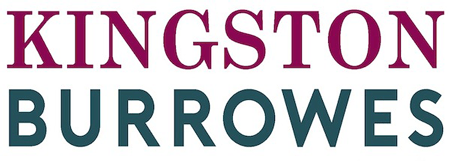The P11D deadline is just a couple of months away, which means all employers that need to complete one should be making the necessary preparations now. If this is the first time you have been required to report employees benefits or non-exempt expenses, you may be wondering where to start, which is why we have created the following guide, covering all the ‘need to know’ information. All payroll clients would have received an email about the P11Ds for 2021-22 from the payroll services team here at Kingston Burrowes Accountants.
What is a P11D form?
A P11D form is used to report benefits in kind or non-exempt expenses, that some or all employees may have received in addition to their usual salary during the tax-year ended 5 April 2022 and have not already been deducted through payroll.
Even if employee benefits have been processed through payroll during 2021/22, a P11D(b) must still be sent.
The form enables HMRC to calculate how much an employer must pay in Class 1A national insurance contributions (NICs), in addition to how much PAYE is due from the employee on the benefit.
What is a P11D(b) form
If you have more than one P11D form to submit you are also required to submit a P11D(b) form. A P11D(b) summarizes the P11D forms that have been submitted to HMRC and forms a declaration of the amount of Class 1A NIC that is due for the year.
Who is responsible for the filing of a P11D form?
It is always the responsibility of the employer, rather than employee to file a P11D form.
When are the P11D & payment of the class 1A NIC deadlines?
The deadline for the most recent tax year’s (6 April 2021 – 5 April 2022) P11D form will be 6 July 2022. For the 2021/22 tax year, any tax due on the benefits provided to employees, must be paid by 19 July 2022 for cheque payments, and by 22 July 2022 for electronic payments.
What to include on a P11D form
Generally speaking, any items the company pays for and that the employee benefits from needs to be included on the P11D form, here are some examples of expenses and benefits that need to be reported to HMRC:
- Cars, vans and /or fuel provided by the company and available for private use (in the case of vans incidental private use can be ignored)
- Loans for season tickets (travel)
- Other loans over £10K (Employee/Director’s loan)
- Assets provided to an employee that have significant personal use (laptop, televisions, bicycles, etc)
- Health and medical insurance; dental insurance
- Self-Assessment fees paid by the company
- Non business travel expenses
- Non business entertainment expenses
- Mileage allowance – amounts in excess of the HMRC approved rates
- Training – only work related training is allowable and only if paid for or reimbursed by the company
- Telephones and mobile phones – unless the contracts are in the company’s name (I would look into the circumstances with the client)
P11D Exemptions
Although there are many items that need to be listed on the P11D form as expenses and benefits, there are common business expenses that do not need to be included on your P11D forms, including:
- Business credit cards
- Business travel
- Entertainment expenses for business purposes
- Subscriptions and fees for professional bodies or journals
- Uniforms
- Tools for work
What records are needed to support a P11D submission
A record of all expenses and benefits provided to employees should be kept. This includes the dates and details of all expenses or benefits provided, as well as related information used to calculate the amounts you entered on end-of-year forms. Payments contributed by employees to an expense or benefit should also be retained.
Late submission penalties
To avoid unnecessary penalties from HMRC, it is essential that the correct information is provided on time. Late submissions are subject to a penalty of £100 per 50 employees, per month, for each month that the return is late. Late payment to HMRC will also incur fines and interest. If HMRC judges that you have deliberately or accidentally provided incorrect information on the P11D, then a penalty would be incurred, which could amount to up to 100% of the tax owed.
Further Support and Advice
If you need advice or support with any aspect of payroll, tax or accountancy, please get in touch with the Kingston Burrowes team, who will be happy to help!




